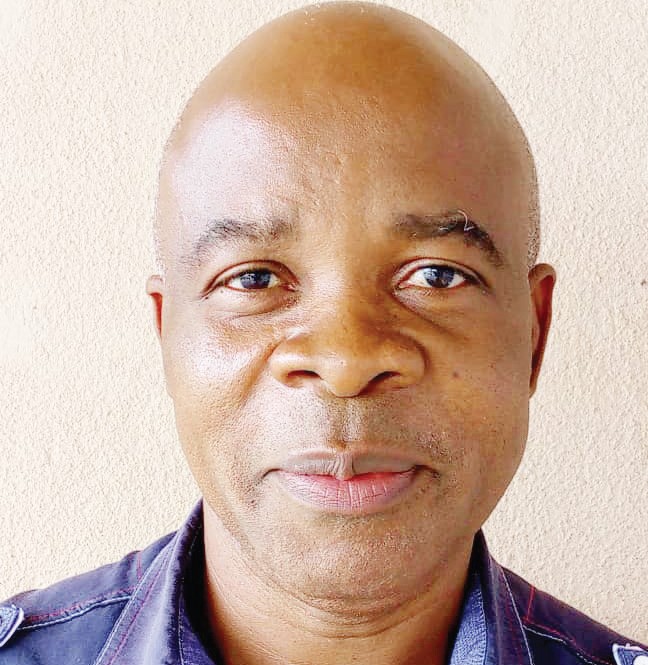Democratic governance receives new watchdog
As the count-down to the 16 September 2025 General Elections gathers momentum, some stakeholders have surfaced and are spelling out their roles in the national elections. Our Staff Writer MICHAEL MMEYA caught up with executive director of the newly-established Centre for Democracy and Elections (Cede) ALOISIOUS NTHENDA to explain Cede’s take in the elections.

Q. Where has Cede come from?
A. Cede is a team of experienced and skilled democracy and elections practitioners that seeks to strengthen democratic governance and election integrity in Malawi and beyond.
Q. How different is Cede going to be from other democracy and elections-related institutions already on the ground?
A. Leveraging on its vast expertise and worldwide networks of practitioners and institutions, Cede’s methodology is building a national conversation and dialogue on key electoral matters. It is going to create and anchor a platform for independent and objective dialogue among electoral stakeholders and voters. The second approach is to increase capacity, coordination and participation of civil society, candidates, women and youth, the elderly and persons with disability.
Q. What is Cede’s view on democracy and elections in Malawi?
A. Malawi’s political system and structures have not embraced democratic principles and values and, as such, democracy is taking too long to get fully-established. Malawi still lacks strong and independent governance institutions that can perform their duties as required by law for the good of all. There is also limited participation and enjoyment of social and economic rights by the majority of the citizens. Full participation is tied to political party affiliation and nepotism. Malawians are not being treated on equal footing. Also, there is diminishing transparency and accountability levels by elected leaders and public officials both to the public directly and through the representative and mediating institutions such as Parliament, courts, Office of the Ombudsman, the Anti- Corruption Bureau (ACB) and other watchdog agencies. As a result, both elected and public officials are not working as agents or servants of the people. This culture of impunity has increased corruption, fraud and wastage of government resources by a few individuals. On elections, Cede commends Electoral Commission (MEC) for publishing the calendar for Malawi’s 2025 General elections in good time. However, Cede is worried that most of the proposed reforms after the 2020 fresh presidential election have not been implemented or enacted into law. We are also worried with the National Registration Bureau (NRB), a key partner to MEC on voter registration. Another challenge is lack of robust systems and structures for conflict management during elections as evidenced in the postponement of by-elections in Mwansa Ward in Mangochi this year.
Q. How does Cede plan to execute its mandate before and after the next general elections?
A. Before the 2025 general elections, Cede plans to champion and spearhead a national conversation and dialogue on election integrity and democratic governance that will independently and objectively discuss preparations for the elections covering the entire electoral process so that the general elections meet both local and international standards for genuine democratic elections. After the general elections, Cede will undertake post-election activities to assess the electoral process, draw lessons, lobby and advocate for electoral reforms and work with elected leaders in Parliament and in the councils. Before and after, Cede will be involved in rapid research on governance and electoral matters.
Q. Food is a political issue, what needs to happen for Malawians to enjoy their democracy?
A. In order for Malawians to enjoy democracy and right to food, government needs to put in place systems and policies that will ensure Malawians have access to adequate food all-year round. Government should ensure that means of production and affordability are accessible by all citizens. Government must create a conducive economic environment that will enable citizens to have the economic power to purchase food of their choice. In times of disasters government has the responsibility to provide food assistance to the affected citizens.
Q. It seems it would be suicidal for any political party to stop food subsidies and expect to win an election, what is Cede’s take on this?
A. Food subsidies are available in most countries in the world. However, Malawi’s biggest challenge is that subsidies have not translated into increased food production due to lack of good policies and systems in implementing subsidies. Subsidies are being directed by partisan interests, starting from awarding of contracts for suppliers to identification of beneficiaries. Subsidies have been one of the biggest drains of forex and the process is heavily burdened by corruption, technology failures, fraud and beneficiaries are subjected to humiliating conductions with no improvement insight.
Q. What is Cede’s take on the 50% + 1 vote electoral system of electing a President?
A. In order to enhance political legitimacy, inclusiveness and representation in the election of all officials, including the President, Cede supports an absolute majority of 50%+1 vote. It is a good threshold for a candidate to win a presidential race. This ensures that the winning candidate receives a strong popular mandate to govern. This also increases national unity because there will be reduced dependence on party strongholds or regions for a candidate to win an election as the condition will compel all presidential candidates to seek votes in all parts of the country and, thus, reach out to non-stronghold areas.
Q. Your final word?
A. Elections belong to the people of Malawi and, therefore, it is imperative to restart an all-inclusive process of electoral reforms in preparation for the general elections. Malawians must be given an opportunity to actively participate in a National Conversation or Dialogue on Malawi 2025 General Elections with key focus on voter registration, the NRB, conflict management and inclusion. Finally, there is urgent need to assess the level and quality of democracy in order that all citizens enjoy democracy and human rights.n





